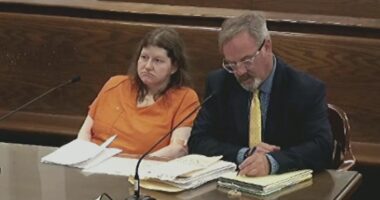
The Palm Coast City Council is at war with itself over a proposed referendum that would remove borrowing limits the city has had to comply with for 25 years. If the city is hoping for a successful outcome in November, this is not the way to go about it, especially for a mostly lame-duck council, three of whose members were rejected by voters and a fourth who just resigned.
Two council members who had approved the referendum’s wording in July now consider it vague, unclear or misleading. Public opposition has been increasing, it has been sharp, and it has been all but unanimous. Even the usually gabby local chamber’s representative and cheerleader of all things development has been conspicuously absent from the discussions, as if avoiding a third rail.
For all the grim writing on the wall, an attempt to remove the proposed referendum from the Nov. 5 ballot and let the new council rewrite it more clearly and with additional guardrails failed in a 2-2 vote Tuesday evening.
Council member Ed Danko had made the motion to remove the proposal from the ballot. “The language is confusing. It’s dishonest and it’s deceitful, and I want to be very clear on that,” he said. “Let the next council deal with it, and we only have to wait two short years to put it on a ballot the next election, and if it’s explained properly to folks and what it’s for, and if it’s honestly explained, there’s a chance you could vote on it if you think it would help with our infrastructure.”
Council member Theresa Pontieri seconded, initially for discussion purposes, though she joined Danko in the vote for removal. Mayor David Alfin and Council member Nick Klufas voted to keep it on the ballot. A tie vote meant the motion died. The council has an empty seat since the resignation of Cathy Heighter last month. The seat won’t be filled until Oct. 1.
Cornelia Manfre, one of the two candidates in the run-off for mayor on the same Nov. 5 ballot, kicked off what would turn into a stream of nine public voices during the opening public comment segment, opposing the referendum and asking the council to remove it.
“I’m very concerned that 25 years ago, our founding fathers decided that we would have a cap and a time frame on any borrowing power,” Manfre said. The proposed language of the ballot “leaves it very open ended.” Manfre considers the language confusing regarding future liabilities to residents, doubting that only “future” residents would be repaying new debt (the city has not shown, nor has tried to show, how future debt would be assumed only by future residents), and asked that the whole proposal be stricken from the ballot.
Then followed public comment after public comment, calling the proposal “muddy,” “intentionally misleading,” “deceptive” and “confusing,” foreseeing its failure, and originating with a council “that, for the most part, is going to be out.” Klufas is term-limited and lost his bid for a County Commission seat, as did Danko, who was not term-limited but will be off the council by December. Alfin was defeated by Manfre and Mike Norris, the other candidate in the runoff.
Danko and Pontieri followed with strong arguments to remove the ballot proposal this year and float it again in two years. Alfin and Klufas largely stood by, providing little by way of counter-arguments. The council has already approved the language, and it is too late to rewrite it: to do so, the council would have to re-advertise the hearings and stretch out the process through September, but the Supervisor of Elections is sending the ballots to the printer this week. A re-written proposal was simply not possible.
Whether or not Alfin and Klufas would have opposed a re-write had there been time remained unclear, a lack of clarity that in itself further underscored how problematic the wording of the ballot language had become, and how glaring the council’s contortions.
Pontieri summarized the genesis of the proposal, which started with wording by the city attorney in early summer, then a rewrite by the council as a whole. “I did not single-handedly write this language. I did not do this by myself. We had consensus from this council and vice mayor and I worked together to edit it, to make it more transparent,” Pontieri said, the vice mayor being Danko. “Anybody can go back and watch that video.” She reminded residents that it is only a referendum at this point: “If you all don’t want it, then you vote no. And I actually think that that will happen. I do think that the vote will be No on this.”
In case the referendum passes, she suggested additional guardrails. The council would approve a resolution, effective January 1, that any borrowing of $30 million or more would require a supermajority vote of the council (at least four council members), thus alleviating the fear that the council could borrow whatever it wants. “I recognize the public’s apprehension in this regard, and so if we do not get the votes to pull this from the referendum, I suggest that we as council enter into this resolution,” Pontieri said. She will be the only elected council member left standing come December. The appointed member will serve out Heighter’s two years.
Vague language aside, criticism about the referendum has seized on its motive. The council previously lent support to what would be a $93 million sports complex on the city’s west side. Some critics see bonding as a financial mechanism for the complex. While that could be one financing model, it isn’t the only one–nor the one that interested council members when they discussed the complex, though both complex and bonds could soon be moot. Four of the five council members who favored the complex will be off the council by December, and the referendum’s success is in doubt, with Pontieri herself adding to the doubt–and distancing herself from the sports complex connection.
“I don’t know what everybody else’s intentions with this charter amendment are,” Pontieri said. She’s not opposed to a sports complex if it were part of a public partnership, as it would bring tourism dollars in, she said later in the meeting. But she did not see the ballot proposal as part of that. “My intentions are to fix infrastructure without paying as we go. The pay as you go system is not working. It is not tenable. It is not sustainable. We have to be able to borrow money to fix infrastructure before it breaks.” The $15 million borrowing limit built into the charter in 1999 did not provide for inflation. That $15 million in constant dollars would be close to $30 million today.
But connecting the bonding referendum to infrastructure like utilities would be incorrect: the council does not need the referendum to pass for its utility department to have more freedom to borrow. The utility department is its own separate entity, independent of the general fund (where taxpayers’ property tax revenue goes) and operated strictly on user fees. It can and does bond well past the $15 million limit without voter approval. That authority would persist regardless. The same can’t be said, say, if the city wanted to borrow over $15 million to build a fire station or a public works plant, or to spend the money on street repairs.
Klufas said it’s not just inflation: the council went to the rollback rate last year, eliminating $2.5 million that was slated for infrastructure, he said. Danko is not opposed to bonding for whatever reason (though he’s not supportive of borrowing for a sports complex). But he’s opposed to doing so without voter approval.
“I think yanking this from the ballot and proceeding down the path you just laid out only puts us two years away from getting the ability to actually do bonds and a way that the public understands why we’re doing it,” Danko told Pontieri. “I actually think this makes a lot of sense.”
Yet more people from the audience addressed Danko’s motion, again opposing the referendum’s language or existence on the ballot. This round included the words “song and dance,” “absolutely not,” “appalling” and “malfeasance” if–as with the first round–with substantial doses of misinformation, misplaced criticism and baseless claims (“there’s so many people here that are overpaid and under qualified”).








